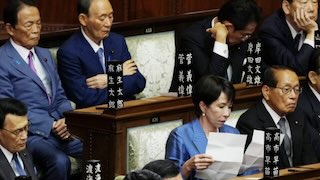Nov 14 (Reuters) - Japanese Prime Minister Fumio Kishida told Asian leaders on Sunday that China is continuously and increasingly taking actions that infringe on Japan's sovereignty and escalate tensions in the region.
Addressing the East Asia Summit in Cambodia, Kishida said ensuring peace and stability in the Taiwan Strait was important for regional security, voicing "serious concern" over the human rights situation of the Uyghur people, according to a statement from Japan's foreign ministry.
"There has been continued, increasing actions by China in the East China Sea that violate Japan's sovereignty. China also continues to take actions that heighten regional tension in the South China Sea," Kishida told the meeting, according to the statement.
Kishida's remarks follow those of U.S. President Joe Biden, who stressed to Asian leaders the importance of peace in the Taiwan Strait and ensuring freedom of navigation in the South China Sea.
Kishida reiterated that North Korea's "extremely frequent" ballistic missile launches since last month, including one that flew over Japan, were a "clear and serious challenge" against the international community, and therefore unacceptable. ...continue reading















